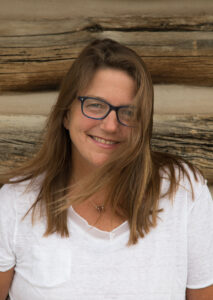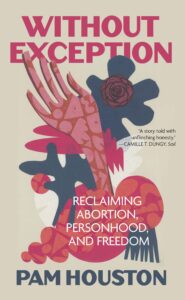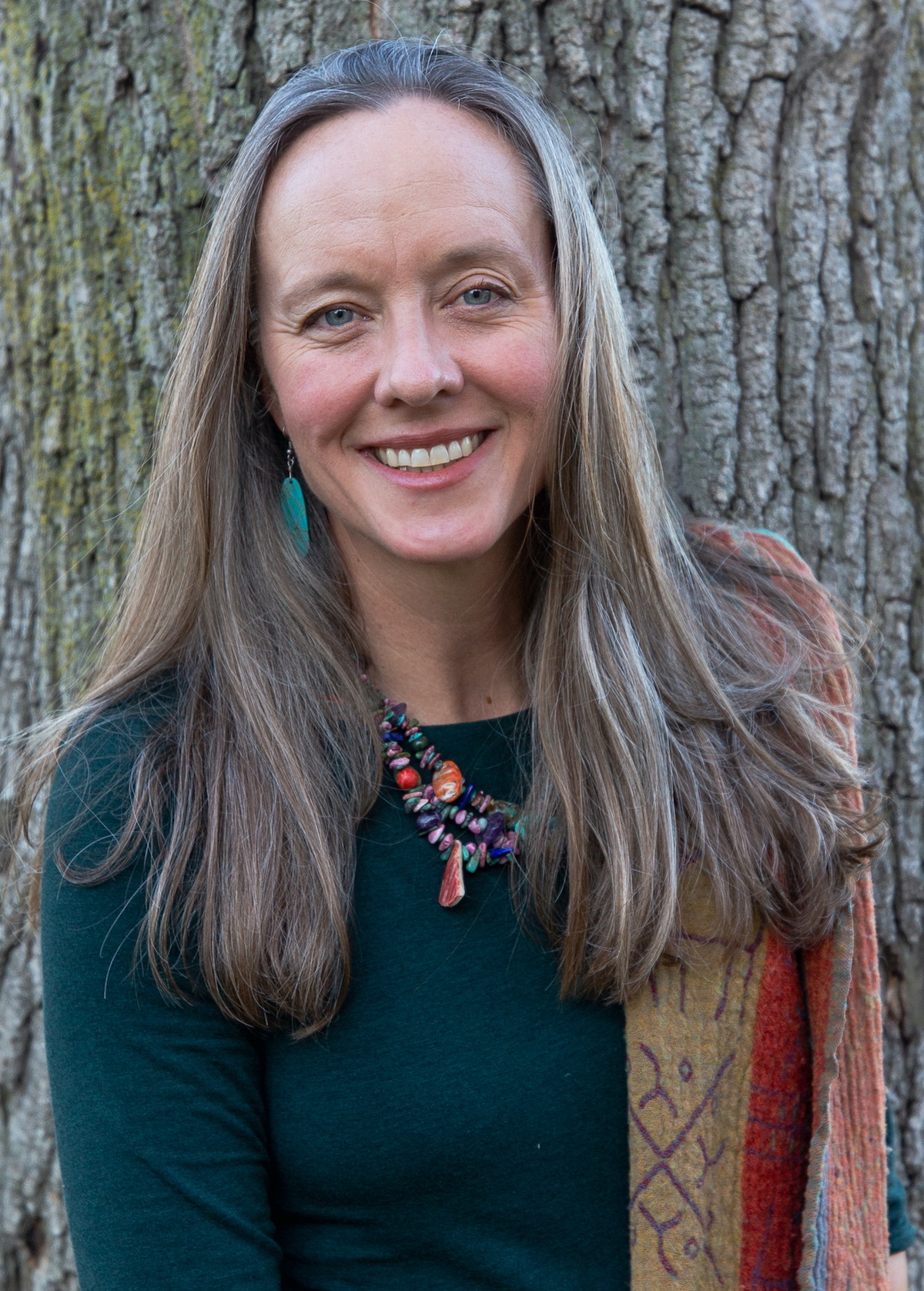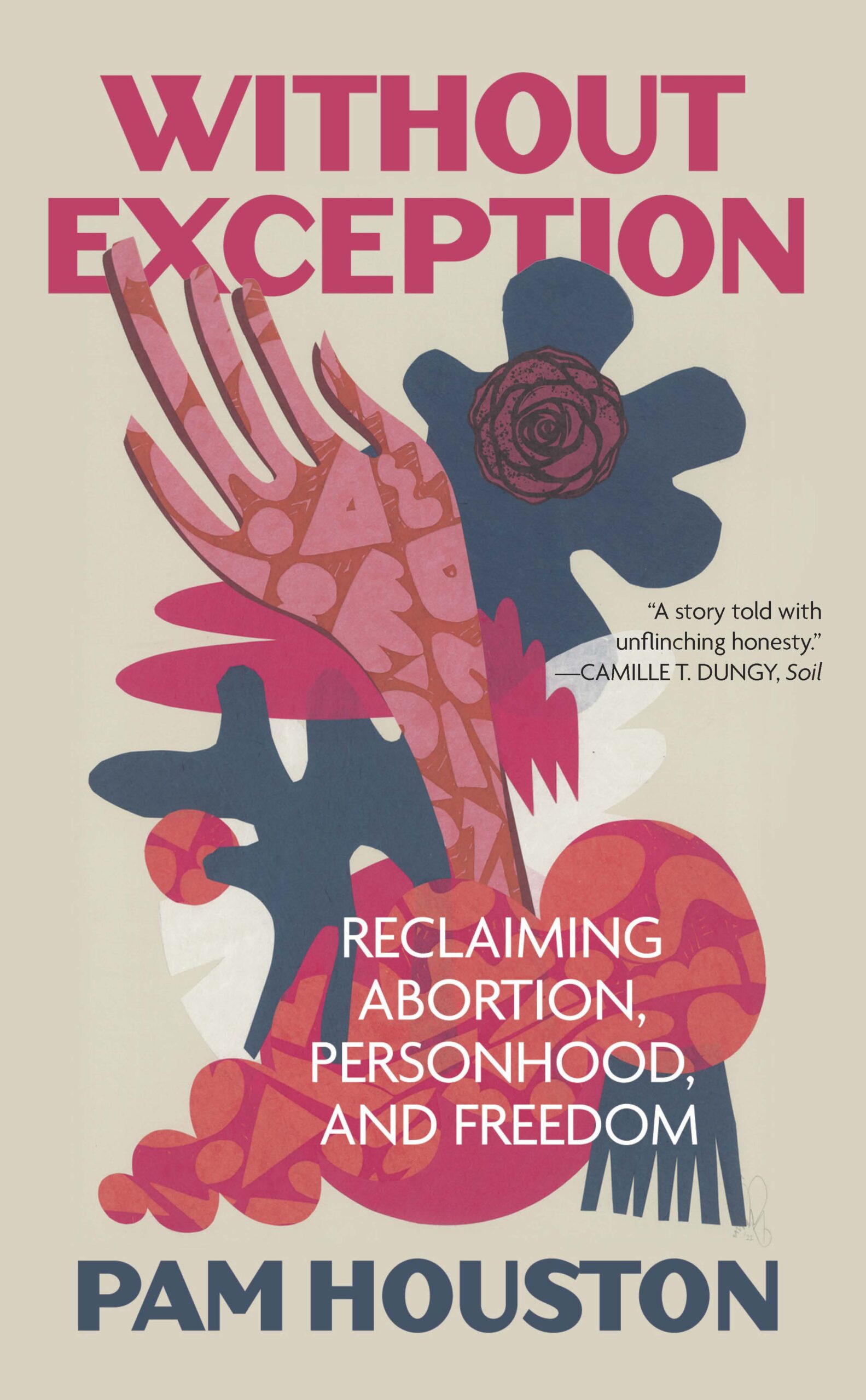Women’s bodies and Earth bodies have rights, without exception
A review of Pam Houston’s Without Exception: Reclaiming Abortion, Personhood, and Freedom
A review of Pam Houston’s Without Exception: Reclaiming Abortion, Personhood, and Freedom
Colorado author Pam Houston is well known for her exquisite prose and ground-breaking books. She’s also known for her advocacy around environmental and social justice issues. Her latest collection of memoir-based essays, Without Exception: Reclaiming Abortion, Personhood, and Freedom, reveals how her life, both personal and professional, was supported in part by women’s access to abortion. In fact, Houston’s own reproductive life fell within the bounds of the duration of Roe v. Wade, legalizing a woman’s bodily sovereignty in the United States. With those women’s rights, human rights, threatened by the recent Supreme Court decision to overturn Roe, Houston felt called upon to lay out her argument for the freedom to choose.

Pam Houston
In a memoir told in brief, connected essays, Houston provides examples from her own life while exploring the legal history of reproductive rights within the United States. In the Author’s Note, she explains her personal reaction to social and cultural shifts and the foundation of her argument: “I console myself with the knowledge that no matter the headlines on any particular day, the freedom to control what happens to one’s own body is not only the foundation for gender equality, it is the foundation upon which all other human rights are built.”
Originally from Trenton, New Jersey, Houston marked the beginning of her freedom when she left home for college—freedom to learn who she would become out from under the influences of a habitually sexually abusive father and a resentful alcoholic mother. Eventually she made her way west, completing master’s studies in English at the University of Utah. Her thesis became the internationally acclaimed, bestselling collection of pseudo-autobiographic short stories, Cowboys Are My Weakness (1992).
Houston’s westward gaze landed upon the southern Rockies at the headwaters of the Río Grande, where she now lives on a ranch with her partner alongside their dogs and horses. A Creative Writing professor in the Master of Fine Arts program at the Institute of American Indian Art in Santa Fe, Houston also teaches graduate studies at University of California Davis and at workshops and retreats around the world.
Without Exception is well researched with facts, drawing liberally from Justice Sonya Sotomayor’s dissent to the Supreme Court’s majority decision, but its punch comes from personal experience related boldly and without hesitation. Houston’s writing is raw, opening wounds from her past, leading to emotionally unanticipated places she feels she needs to write about so that others can enter this space with her. Her compassion extends to all women, whether a 12-year-old girl impregnated by a stepfather; a young woman roofied during a night at a bar, resulting in pregnancy; a mother not able to financially support another mouth to feed or a woman experiencing a tubal pregnancy that threatens her life. All women, all humans, have an inherent right to choose their path forward, Houston argues.
Defining what freedom means to her personally, Houston details her love of place and rootedness in locations throughout the world. A voice for those natural places threatened by climate change, resource extraction and pollution, Houston argues she has been able as a childless author to set her attention on advocacy for other-than-human communities instead of her own nuclear family. This has been a conscious choice, Houston admits; she has had three abortions: one in her twenties, one in her thirties and a third at 41 years old.
Perhaps it is because Houston’s mother admitted and repeated often that her talents lay elsewhere than mothering, that Pam “turned to the Earth for [her] mothering.” She learned from the wild to be a “mama bear” for wilderness and for those not able to fight for themselves. That’s why she wrote Without Exception, to challenge the decisions of the powerful and to champion resistance that grows in its own grassroots power on the page.
Houston declares that she “cannot write a book about how we treat mothers that does not also consider how we treat the Earth.”  A good example is the way she examines reproductive rights and personal autonomy from a variety of angles, arguing that the human need to dominate and exploit nature and its resources is intertwined with the need to dominate women’s bodies.
A good example is the way she examines reproductive rights and personal autonomy from a variety of angles, arguing that the human need to dominate and exploit nature and its resources is intertwined with the need to dominate women’s bodies.
In a particularly moving section, she embraces what poet John Keats termed negative capability, the “uncertainties, mysteries and doubts” that coexist within human experience, the boundless potential that life presents. In her own life, she argues, she has succeeded in pursuing wonder and sharing it with others because she is childless, or because her children are not small humans but words advocating for others, books opening new possibilities, places and other-than-human beings she describes vividly and loves fiercely.
From animals she has “learned how to love, how to die, and how to be with the dying,” referring especially to horses. “Animals do have sentience. They do communicate, they do plan … cross-species communication has always thrilled me. You communicate with your heart, occasionally with your voice, but mostly through your body. It’s a constant state of opening your heart to what the two of you can accomplish together if TRUST is achieved.”
Because of the upcoming election, women’s reproductive rights have come to the forefront of our socio-political conversation. Without Exception unabashedly supports a person’s right to make decisions that affect their own body, including abortion and the choice to conceive, give birth and raise a child. Each will influence all the other decisions throughout a woman’s life, Houston argues. Women’s bodies and Earth bodies have rights without exception. Houston’s words, even those shaping harsh and hard-earned experience, are filled with hope. She believes women are waking up to their own power and that many in the United States are learning to listen.
Shelli Rottschafer (she/her/ella) completed her doctorate from the University of New Mexico in 2005 in Latin American Contemporary Literature. From 2006 until 2023 Rottschafer taught at a small liberal arts college in Michigan. Summer 2023 she began her low-residency MFA in Creative Writing with an emphasis in Poetry at Western Colorado University, Gunnison. Together with her partner and rescue pup, she resides in Louisville, Colorado and El Prado, Nuevo México.
Click here for more from Shelli Rottschafer.

